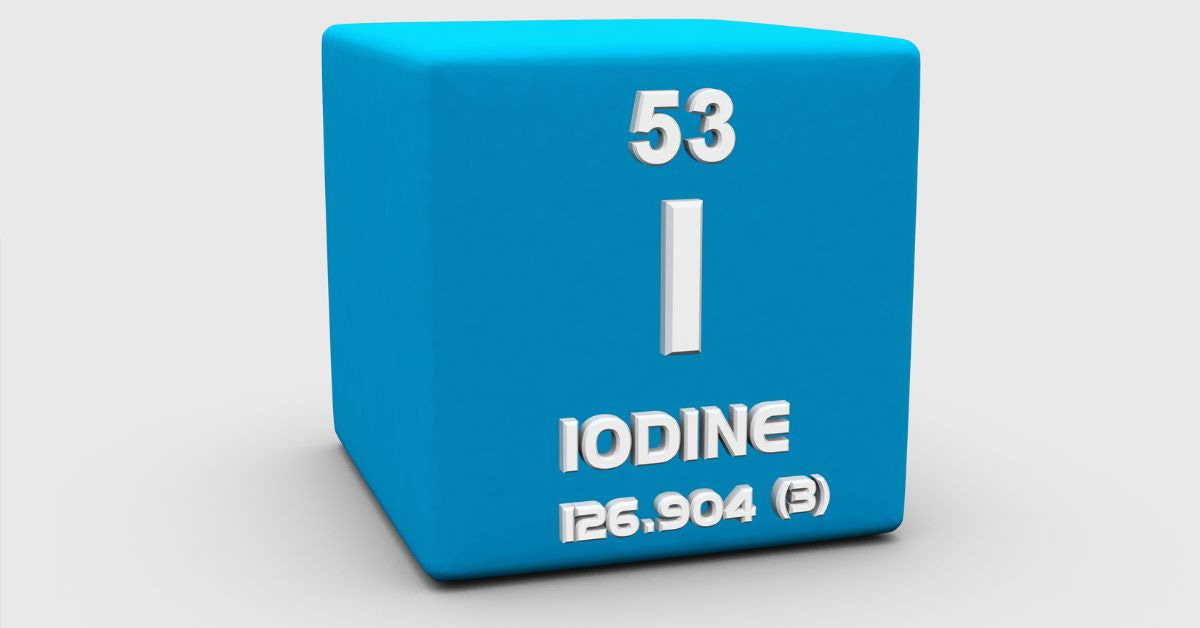The invisible epidemic of iodine deficiency
Iodine should be on every midlife woman's radar. And here's why.
No mineral is more controversial than iodine. There are some health professionals that think deficiency is rare and others that think we need to mega dose.
A part of the problem is a small portion of the population has trouble with iodine, which can negatively affect the thyroid. Yet if you don’t get enough iodine, this can also cause thyroid issues. Talk about confusing.
Based on everything I’ve read iodine is a real watch out. Research shows that urinary iodine has
decreased by 50% between 1970 and 2000. And it seems easy for midlife women to come up short in this area.
That’s because not many foods have iodine (and in some regions its low in soil), which is why iodized salt was introduced many moons ago. It’s in dairy products, fish, seaweed, and iodized salt. With many giving up dairy, no longer using iodized salt, and not eating fish, it’s a potential problem. Also, estrogen has indirect and direct effects on thyroid function in which iodine plays a role.
Iodine is needed to make thyroid hormone, but it also is important for heart and breast health. In fact, one study argues that the increase in breast cancer in younger women may be related to the reduction of iodine we’ve seen. And studies suggest people with lower urinary iodine are at increased risk of heart disease.
I found an interesting study that iodine status correlates with symptoms of perimenopause and menopause. I have a sneaking suspicion that iodine needs increase as women age but the research is lacking. [see this post to understand how little nutrition research is being done and why the pandemic unmasked this problem]
Why suddenly did my TSH increase when I hit perimenopause? I was doing the same exact thing diet wise.
I became much more aware of my iodine intake. I started to take a multivitamin with iodine every other day and iodine drops on the days I don’t take my multi. I varied my diet as well, and my TSH inched back down.
Here's what I've learned: when our hormones begin to change, it can reveal inadequacies. That’s because our hormones do a lot of heavy lifting and when they decline, we need to work a little harder.
I can’t say for sure it was the iodine or the fact that I was finally getting the iron I needed (iron also plays a key role in thyroid health, but that’s for another time) or something else. But the truth is there’s so much we don’t know. We need more research on this area and my guess is the future will bring many more insights into nutrition for midlife women.
But at the very least, midlife women can be sure they are at least getting the RDA of 150mcg/day. This may be through a daily multivitamin or using drops like this one.
And why not try to eat more sources of iodine -- fish is a rich source. Here are other sources of iodine:
If you want to know if your current diet supplies enough iodine, get a urinary iodine test as outlined in my Biomarker Guide. Because 90% of iodine is excreted in the urine, measuring the amount in urine can help determine adequate status. This measurement is usually done over 24 hours.
Keep an eye on your TSH levels too. I’m going to have some guests on the podcast talk about thyroid health so stay tuned!
Do you know how much iodine you’re getting?






